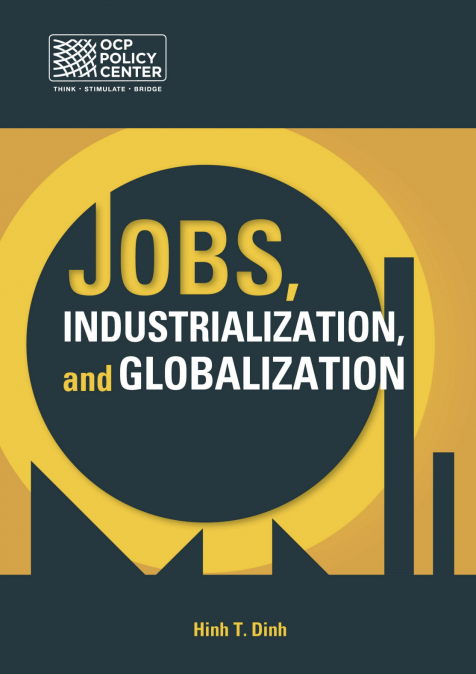Publications /
Book / Report
After many decades of expansion, incomes and standards of living have never been better in many parts of the world. Yet, in the developed economies, there is anxiety over the loss of manufacturing jobs that once absorbed a large share of the labor force and created a middle class that formed the core of democracy. The vast majority of middle- income countries have not yet been able to make the transition to the high-income group despite decades of growth. Progress among low-income countries, particularly sub-Saharan African countries, in achieving productivity growth and structural transformation has been slow, and deindustrialization has occurred in some.
Jobs, Industrialization, and Globalization examines the development problems pertinent to each of these groups of countries and explores solutions. The book’s structural analysis reveals that, among the low- and middle-income countries, industrialization remains the major route, if not the only route, to creating jobs and raising incomes, while acquiring the necessary investment in human capital to reach the next stage of modernization. Among the low-income countries, it pays to shift resources from low- to high-productivity sectors and to create jobs in light manufacturing so that idle or laid-off workers can move there. Among the middle-income countries, global competition makes shifting production away from raw materials and commodities to manufactured goods essential; yet, the vertically specialized industrialization regime—the global value chains—is generating new challenges along the path to industrialization and requires a reappraisal of government policies. Among the advanced countries, such as the United States, modern industrialization involves shedding unskilled labor at an accelerating pace, partly because of automation and partly because of rising competition from abroad. More importantly, the future of modern manufacturing revolves around new technology, and there are many uncertainties. These countries require policy reform to protect workers and to keep a viable middle class that may serve as a foundation for democracy and prosperity.











